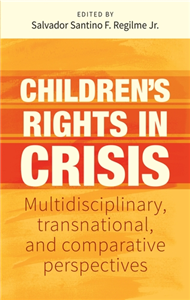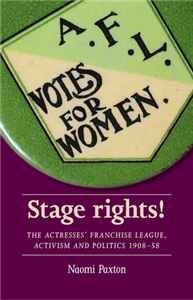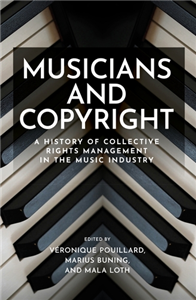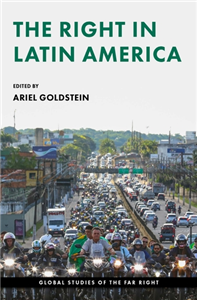Your Search Results
-
minibombo
Minibombo makes picture books characterized by clear images and solid colours, telling stories with a short text or no text at all. The books aim to create a participated reading process between adults and children and require a bit of creativity and cooperation on their part. Minibombo loves to explore different types of communication. This is why some of its paper stories have become the starting point for creating digital applications. The apps refer to the original stories in the books and develop them further by exploiting a different code. All the minibombo apps are available worldwide on the App Store and Google Play. Minibombo started in Reggio Emilia, Italy, in 2013. Since its beginnings, it has been highly appreciated both by readers and operators in the sector and has been awarded several prizes which have helped make its books known among a wide public. Its books are translated in more than fourteen counties worldwide.
View Rights Portal
-
Promoted ContentHumanities & Social SciencesApril 2009
Tensions in the struggle for sexual minority rights in Europe
Que(e)rying political practices
by Nico Beger
Tensions in the struggle for sexual minority rights in Europe, newly available in paperback, is the first queer and poststructuralist reading of political rights concepts in the specific European transnational context. In the last thirty years Europe has seen the rise of gay, lesbian, bisexual and transgender movements fighting nationally and transnationally for participation rights in society. In addition academic theorists have increasingly paid attention to the epistemological and ontological roles gender and sexuality play in modern politics. However, in the political process of arguing for rights the centrality of those roles is mostly hidden from view in official institutional and movement discourses. This book investigates the conceptual themes of lesbian, gay and transgender rights and lobby politics in Europe and their open and hidden relations to binary and hierarchical orders of dominance. It contributes to an understanding of the conditions upon which politics of inclusion, participation, social justice and equality rest and why struggles for sexual minority rights have been so difficult and slow. It illuminates how the paradigms of political discourse constitute, consolidate and contest the meaning and cultural significance of gender and sexuality on modern, democratic, capitalist European societies. ;
-
Promoted ContentHumanities & Social SciencesJune 2026
Children’s rights in crisis
Multidisciplinary, transnational, and comparative perspectives
by Salvador Santino Regilme
This book rigorously investigates the contemporary state of children's rights and the multifaceted challenges facing children, uncovering the complexities at their core. In 1989, the United Nations introduced the Convention on the Rights of the Child (CRC), ratified by 196 nations, promising a world where children's rights would reign supreme. In practice, however, realising these rights proves intricate and often precarious. Policies may shine on paper, but their implementation grapples with the challenges posed by global governance structures, national strategies, and local factors. Over three decades since the CRC's inception, this book scrutinises the true efficacy of international commitments, shedding light on underexplored issues and revealing shortcomings in both discourse and actions. With diverse, interdisciplinary perspectives, it recognises the profound influence of global and transnational forces in generating outcomes that impact children's rights and welfare. An electronic edition of this book is freely available under a Creative Commons (CC BY-NC-ND) licence.
-
 Trusted Partner
Humanities & Social SciencesJune 2024
Trusted Partner
Humanities & Social SciencesJune 2024Children’s rights in crisis
Multidisciplinary, transnational, and comparative perspectives
by Salvador Santino F. Regilme Jr.
This book rigorously investigates the contemporary state of children's rights and the multifaceted challenges facing children, uncovering the complexities at their core. In 1989, the United Nations introduced the Convention on the Rights of the Child (CRC), ratified by 196 nations, promising a world where children's rights would reign supreme. In practice, however, realising these rights proves intricate and often precarious. Policies may shine on paper, but their implementation grapples with the challenges posed by global governance structures, national strategies, and local factors. Over three decades since the CRC's inception, this book scrutinises the true efficacy of international commitments, shedding light on underexplored issues and revealing shortcomings in both discourse and actions. With diverse, interdisciplinary perspectives, it recognises the profound influence of global and transnational forces in generating outcomes that impact children's rights and welfare.
-
 Trusted Partner
Humanities & Social SciencesJuly 2021
Trusted Partner
Humanities & Social SciencesJuly 2021The fringes of citizenship
Romani minorities in Europe and civic marginalisation
by Julija Sardelic, Gurminder Bhambra
This book presents a socio-legal enquiry into the civic marginalisation of Roma in Europe. Instead of looking only at Roma's position as migrants, an ethnic minority or a socio-economically disadvantage group, it considers them as European citizens, questioning why they are typically used to describe exceptionalities of citizenship in developed liberal democracies rather than as evidence for how problematic the conceptualisation of citizenship is at its core. Developing novel theoretical concepts, such as the fringes of citizenship and the invisible edges of citizenship, the book investigates a variety of topics around citizenship, including migration and free movement, statelessness and school segregation, as well as how marginalised minorities respond to such predicaments. It argues that while Roma are unique as a minority, the treatment that marginalises them is not. This is demonstrated by comparing their position to that of other marginalised minorities around the globe.
-
 Trusted Partner
Social workFebruary 2013
Trusted Partner
Social workFebruary 2013Children’s rights and child protection
Critical times, critical issues in Ireland
by Edited by Deborah Lynch and Kenneth Burns
This topical book, now available in paperback, comprehensively draws together diverse perspectives from key leaders in the field to address critical issues for children in relation to their rights, welfare and protection at a critical time in Ireland. The broad array of chapters addresses the changing and complex landscape of policy, practice and law. It discusses the politics of children's rights, the impact of child abuse within the Catholic Church, diverse approaches to service delivery and professional practice, the media and representations of child protection practice and the relationship between research evidence and practice. It offers a critique of governance in children's services and identifies key barriers to fundamental progress in the area of children's rights and the protection of children. This original book fills a gap in publications in this area in Ireland. It is vital reading for academics, practitioners, managers, students and policy-makers, as well as being accessible to individuals with a broad interest in child welfare and protection.
-
 Trusted Partner
Humanities & Social SciencesNovember 2023
Trusted Partner
Humanities & Social SciencesNovember 2023Critical theory and human rights
From compassion to coercion
by David McGrogan
This book describes how human rights have given rise to a vision of benevolent governance that, if fully realised, would be antithetical to individual freedom. It describes human rights' evolution into a grand but nebulous project, rooted in compassion, with the overarching aim of improving universal welfare by defining the conditions of human well-being and imposing obligations on the state and other actors to realise them. This gives rise to a form of managerialism, preoccupied with measuring and improving the 'human rights performance' of the state, businesses and so on. The ultimate result is the 'governmentalisation' of a pastoral form of global human rights governance, in which power is exercised for the general good, moulded by a complex regulatory sphere which shapes the field of action for the individual at every turn. This, unsurprisingly, does not appeal to rights-holders themselves.
-
 Trusted Partner
Humanities & Social SciencesOctober 2024
Trusted Partner
Humanities & Social SciencesOctober 2024Brexit and citizens’ rights
History, policy and experience
by Djordje Sredanovic, Bridget Byrne
The book offers interdisciplinary analyses of the impact of Brexit on the rights of EU27 citizens in the UK, Britons in the UK and the EU, and third-country nationals. It combines a historical examination of citizenship and migration between the UK, Europe and the Commonwealth with the analysis of policies and of the experiences of the different groups impacted by Brexit. The book discusses Brexit within the larger history and dynamics of UK and EU citizenship and migration. The individual chapters look at how Brexit is transforming the citizenship rights of different groups, including issues of loss of citizenship and experiences of naturalisation. They further examine the fears of the groups impacted, and larger issues of belonging, marginalisation, political orientations and mobilisations that cross legal status, nationality, ethnicity, race and class.
-
 Trusted Partner
The ArtsNovember 2020
Trusted Partner
The ArtsNovember 2020Stage rights!
The Actresses’ Franchise League, activism and politics 1908–58
by Naomi Paxton
Stage rights! explores the work and legacy of the first feminist political theatre group of the twentieth century, the Actresses' Franchise League. Formed in 1908 to support the suffrage movement through theatre, the League and its membership opened up new roles for women on stage and off, challenged stereotypes of suffragists and actresses, created new work inspired by the movement and was an integral part of the performative propaganda of the campaign. Introducing new archival material to both suffrage and theatre histories, this book is the first to focus in detail on the Actresses' Franchise League, its membership and its work. The volume is formulated as a historiographically innovative critical biography of the organisation over the fifty years of its activities, and invites a total reassessment of the League within the accepted narratives of the development of political theatre in the UK.
-
 Trusted Partner
Humanities & Social SciencesMarch 2014
Trusted Partner
Humanities & Social SciencesMarch 2014Children's rights, Eastern enlargement and the EU human rights regime
by Ingi Iusmen, Dimitris Papadimitriou, Simon Bulmer, Andrew Geddes, Peter Humphreys
This book critically examines how and why Eastern enlargement has impacted on EU human rights policy. By drawing on the EU's intervention in human rights provision in Romania before 2007, it is demonstrated that the feedback effects of this intervention have led to the emergence of an EU child rights policy. Eastern enlargement has also raised the profile of Roma protection, international adoptions and mental health at the EU level. The impact of these developments has been further reinforced by the constitutional and legal provisions included in the Lisbon Treaty. It is argued that Eastern enlargement has led to the emergence of a more robust and well-defined EU human rights regime in terms of its scope and institutional clout. This book makes a substantial contribution to the scholarship on EU enlargement, Europeanisation and EU human rights policy by providing empirical evidence for the emergence and persistence of EU institutional and policy structures upholding human rights. ;
-
 Trusted Partner
Trusted Partner
-
 Trusted Partner
MedicineOctober 2024
Trusted Partner
MedicineOctober 2024Eradicating deafness?
Genetics, pathology, and diversity in twentieth-century America
by Marion Andrea Schmidt
Is deafness a disability to be prevented or the uniting trait of a cultural community to be preserved? Combining the history of eugenics and genetics with deaf and disability history, this book traces how American heredity researchers moved from trying to eradicate deafness to embracing it as a valuable cultural diversity. It looks at how deafness came to be seen as a hereditary phenomenon at all, how eugenics became part of progressive reform at schools for the deaf, and how, from the 1950s on, more sociocultural approaches to disability and minority led to new cooperative projects between professionals and local signing deaf communities. Analysing the transformative effects of exchange between researchers and objects of research, this book offers new insight to changing ideas about medical ethics, reproductive rights, the meaning of scientific progress and cultural diversity.
-
 Trusted Partner
Humanities & Social SciencesMarch 2010
Trusted Partner
Humanities & Social SciencesMarch 2010Negotiating sovereignty and human rights
International society and the International Criminal Court
by Sibylle Scheipers
Negotiating sovereignty and human rights takes the transatlantic conflict over the International Criminal Court as a lens for an enquiry into the normative foundations of international society. The author shows how the way in which actors refer to core norms of the international society such as sovereignty and human rights affect the process and outcome of international negotiations. The book offers an innovative take on the long-standing debate over sovereignty and human rights in international relations. It goes beyond the simple and sometimes ideological duality of sovereignty versus human rights by showing that sovereignty and human rights are not competing principles in international relations, as is often argued, but complement each other. The way in which the two norms and their relationship are understood lies at the core of actors' broader visions of world order. The author shows how competing interpretations of sovereignty and human rights and the different visions of world order that they imply fed into the transatlantic debate over the ICC and transformed this debate into a conflict over the normative foundations of international society. ;
-
 Trusted Partner
Humanities & Social SciencesApril 2021
Trusted Partner
Humanities & Social SciencesApril 2021Critical theory and human rights
by David McGrogan, Darrow Schecter
-
 Trusted Partner
Humanities & Social SciencesNovember 2016
Trusted Partner
Humanities & Social SciencesNovember 2016Postcolonial minorities in Britain and France
by Shailja Sharma
-
 Trusted Partner
Business, Economics & LawMay 2005
Trusted Partner
Business, Economics & LawMay 2005The UN, human rights and post-conflict situations
by Nigel White, Dirk Klaasen
The United Nations is one of the largest providers of assistance in post-conflict situations in the world. This book considers the human rights standards applicable to the United Nations and applied by the United Nations in post-conflict situations, including East Timor, Kosovo and Afghanistan. It looks at legal principles, peace agreements, support of democracy, human rights protection, development and other forms of reconstruction with which the UN has become involved, including the grandly-named task of "state-building". It deals both with the obligation upon the UN to respect human rights in post-conflict situations, and the obligation upon the UN to ensure that human rights are respected by those in positions of power in post-conflict situations. Written by an internationally renowned list of contributors, this book will be of vital use to anyone studying conflict analysis, international relations, international law and the role of the United Nations on the world stage. ;
-
 Trusted Partner
Literature & Literary StudiesFebruary 2023
Trusted Partner
Literature & Literary StudiesFebruary 2023Imagining the Irish child
Discourses of childhood in Irish Anglican writing of the seventeenth and eighteenth centuries
by Jarlath Killeen
This book examines the ways in which ideas about children, childhood and Ireland changed together in Irish Protestant writing of the seventeenth and eighteenth centuries. It focuses on different varieties of the child found in the work of a range of Irish Protestant writers, theologians, philosophers, educationalists, politicians and parents from the early seventeenth century up to the outbreak of the 1798 Rebellion. The book is structured around a detailed examination of six 'versions' of the child: the evil child, the vulnerable/innocent child, the political child, the believing child, the enlightened child, and the freakish child. It traces these versions across a wide range of genres (fiction, sermons, political pamphlets, letters, educational treatises, histories, catechisms and children's bibles), showing how concepts of childhood related to debates about Irish nationality, politics and history across these two centuries.
-
 Trusted Partner
Humanities & Social SciencesMarch 2017
Trusted Partner
Humanities & Social SciencesMarch 2017Child, nation, race and empire
Child rescue discourse, England, Canada and Australia, 1850–1915
by Margot Hillel, Shurlee Swain, Andrew Thompson, John M. MacKenzie
Child, nation, race and empire is an innovative, inter-disciplinary, cross cultural study that contributes to understandings of both contemporary child welfare practices and the complex dynamics of empire. It analyses the construction and transmission of nineteenth-century British child rescue ideology. Locating the origins of contemporary practice in the publications of the prominent English Child rescuers, Dr Barnardo, Thomas Bowman Stephenson, Benjamin Waugh, Edward de Montjoie Rudolf and their colonial disciples and literature written for children, it shows how the vulnerable body of the child at risk came to be reconstituted as central to the survival of nation, race and empire. Yet, as the shocking testimony before the many official enquiries into the past treatment of children in out-of-home 'care' held in Britain, Ireland, Australia and Canada make clear, there was no guarantee that the rescued child would be protected from further harm.
-
 Trusted Partner
Business, Economics & LawMarch 2026
Trusted Partner
Business, Economics & LawMarch 2026Musicians and copyright
A history of collective rights management in the music industry
by Véronique Pouillard, Marius Buning, Mala Loth
Musicians and Copyright explores the role of Collective Management Organizations (CMOs) in shaping the music industry from the mid-nineteenth century to today. Edited by VéroniquePouillard, Marius Buning, and Mala Loth, the book traces the development of CMOs and their impact on copyright and cultural production. Through historical analysis, it examines the challenges CMOs have faced, from colonial contexts to European integration and the digital age, and shows how CMOs have navigated regulatory changes, technological shifts, and internal politics. Offering a detailed history of these important institutions, Musicians and Copyright is a valuable resource for anyone interested in the intersection of music, law, and the cultural industries.
-
 Trusted Partner
Humanities & Social SciencesNovember 2025
Trusted Partner
Humanities & Social SciencesNovember 2025The right in Latin America
by Ariel Goldstein
This book provides an in-depth analysis of the rise and influence of both radical and mainstream right-wing movements across Latin America. Through country-specific case studies, it explores the evolution of these groups and their impact on politics, culture, and governance, highlighting key figures and strategies shaping the political landscape in the region.
-
 Trusted Partner
2025
Trusted Partner
2025Looking the Other Way
How Germany is failing in the fight against child abuse
by Miriam Hesse
A wave of anger, bewilderment, the call for ‘Never again!’: Whenever sexual abuse of children becomes known, there is a loud outcry and assurances that something needs to be improved. However, actual changes and the rectification of structural errors in child protection have yet to materialise. When cases of child abuse end up in court and the manifold failures of the authorities become clear in the course of the trial, people are stunned. But what is being done to eliminate this misery? And what needs to be done to turn ‘Never again!’ into a realistic promise? Miriam Hesse's political book provides a harrowing report on the structural problems in child protection that repeatedly lead to tragedies. At the same time, she shows what changes could bring about real improvements - for the children already affected and to prevent further cases effectively.























